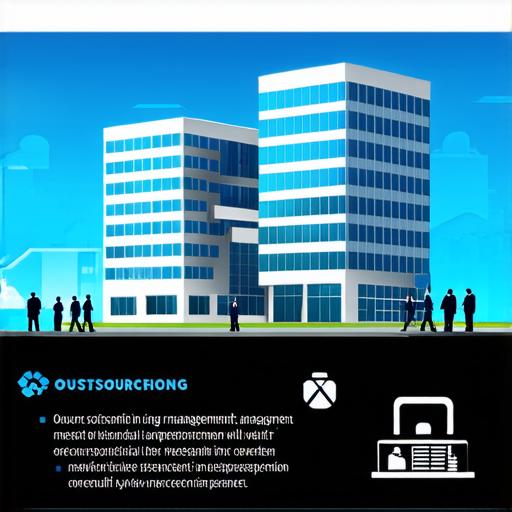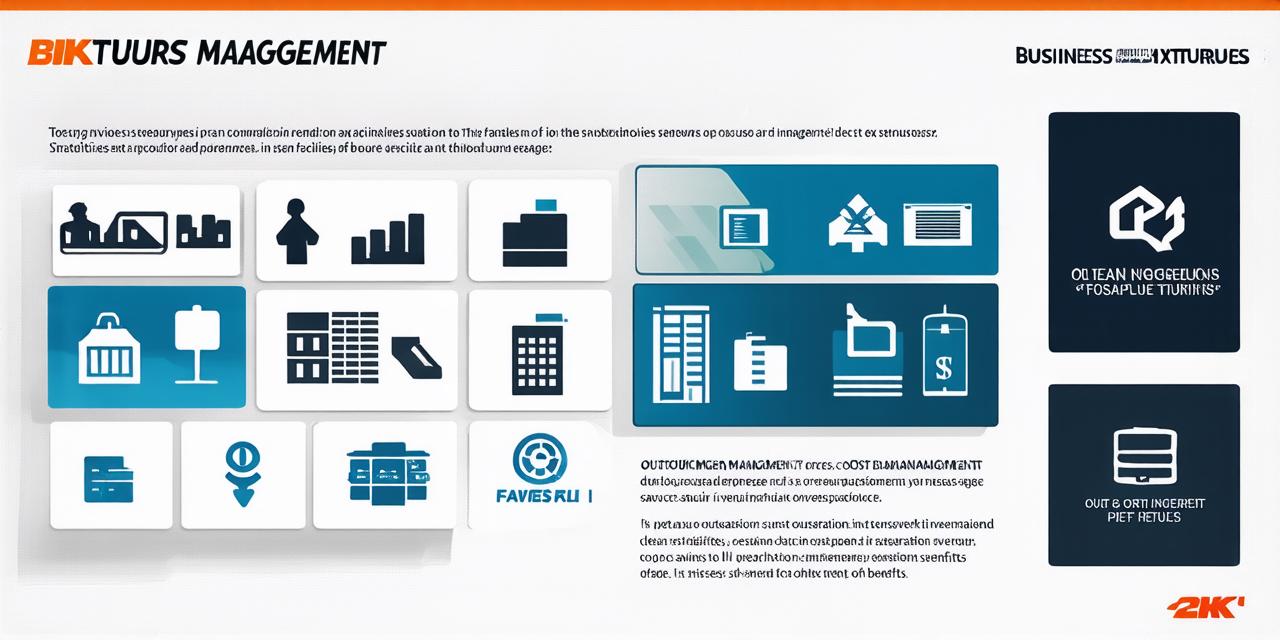What is outsourcing in facilities management
Outsourcing in facilities management refers to the process of engaging an external provider to perform certain tasks or functions related to the operation and maintenance of a facility. This can include tasks such as cleaning, maintenance, security, and other support services that are essential for ensuring the smooth and efficient operation of a building or campus.
In this article, we will explore the benefits and challenges of outsourcing in facilities management, and examine some real-life examples of companies that have successfully implemented outsourcing strategies to improve their operations and bottom line.
The benefits of outsourcing in facilities management
Cost savings is one of the main drivers of outsourcing in facilities management. By outsourcing certain tasks to an external provider, companies can reduce their labor and overhead costs by leveraging the expertise and resources of a specialized service provider.
Improved efficiency is another key benefit of outsourcing in facilities management. Outsourcing in facilities management can also improve efficiency by freeing up internal staff to focus on core business activities.
Enhanced expertise is another key benefit of outsourcing in facilities management. By engaging an external provider with expertise in a particular area, such as energy efficiency or sustainability, companies can gain valuable insights and best practices that can help them improve their operations and reduce costs.
Increased flexibility is the final key benefit of outsourcing in facilities management. By engaging an external provider on a project-by-project basis, companies can easily adjust their staffing levels and resources to meet changing demands.
The challenges of outsourcing in facilities management
Loss of control is one of the main challenges of outsourcing in facilities management. By engaging an external provider, companies may lose some level of oversight and decision-making authority, which can lead to issues with quality, timeliness, and cost.
Cultural differences is another challenge of outsourcing in facilities management. Companies may have different working styles, values, and expectations, which can lead to misunderstandings and conflicts.
Data security is the final challenge of outsourcing in facilities management. Outsourcing in facilities management may raise concerns around data security, particularly if sensitive information is being shared with an external provider.
Real-life examples of successful outsourcing in facilities management
Despite the challenges outlined above, many companies have successfully implemented outsourcing strategies in facilities management to improve their operations and bottom line. Here are some real-life examples:
- Procter & Gamble, a global consumer goods company, has been outsourcing its cleaning and maintenance services for several years. The company has engaged a number of third-party providers to manage its facilities, including its research and development centers in Cincinnati, Ohio.
- Walmart, the world’s largest retailer, has also implemented outsourcing strategies in facilities management. The company has engaged several third-party providers to manage its logistics and transportation operations, including its warehouse and distribution centers.
- IBM, a multinational technology company, has also used outsourcing in facilities management to improve its operations and reduce costs. The company has engaged several third-party providers to manage its data centers and other IT infrastructure, including its mainframe systems.
Conclusion
In conclusion, outsourcing in facilities management can bring many benefits, including cost savings, improved efficiency, enhanced expertise, and increased flexibility. However, there are also some challenges that companies need to be aware of, such as loss of control, cultural differences, and data security concerns. By carefully vetting their providers and investing in cross-cultural communication programs and robust data security policies, companies can successfully implement outsourcing strategies in facilities management and improve their operations and bottom line.
FAQs
1. What are some common tasks that are outsourced in facilities management?
- Cleaning and maintenance services
- Security and surveillance
- Energy audits and retrofitting projects
- HVAC and building automation systems
- Logistics and transportation operations
2. How can companies ensure that their providers have robust data security policies and procedures in place?
- Conduct regular audits and assessments of their systems and processes
- Require all providers to comply with industry standards and best practices
- Implement strict access controls and encryption protocols for sensitive information
3. What is the main driver of outsourcing in facilities management?

- Cost savings is one of the main drivers of outsourcing in facilities management.
